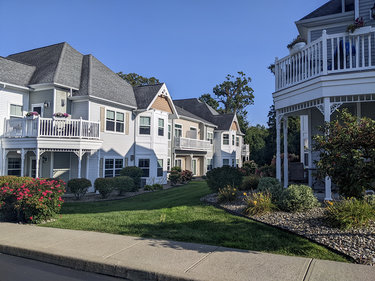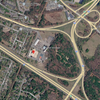Some Brandle Meadow residents have unpotable water
ALTAMONT — The village has shut down its main water source from Gun Club Road, relying instead on water from its Brandle Road wells, which had exceeded federal limits for manganese.
A Guilderland resident and village water customer, Al Caruso, came to the Altamont trustees for help, addressing them at their September meeting.
Caruso lives in the Brandle Meadows condominium complex for people 55 and older, which is in the town of Guilderland outside the village limits but is supplied with village water.
Caruso said the manganese in village water has been a problem for 13 years and has damaged his appliances.
Speaking about costs and water quality, Caruso said, not only are Brandle Meadows residents paying more, the quality is so poor that “I don’t know of anyone in our condo that actually drinks that water.”
In February 2022, the village was notified that a sample from its Brandle Road wellsite contained 0.59 milligrams of manganese per liter; the maximum contaminant level allowed by the Environmental Protection Agency is 0.3 milligrams per liter. The village then resampled a month later and found levels were below the maximum level, at 0.28 milligrams per liter, which, with an average of 0.435, was still about at the 0.3 benchmark.
The village then shut down the Brandle Road wellsite, which produces a third of the drinking water supply when operating, and has largely kept it shut save for periods of peak usage, at which point the Brandle Road supply gets mixed into the village’s other water supply, from Gun Club Road, which has been down as of late, leading the village to turn the pumps back on at Brandle Road.
Well history
After Jeff Thomas purchased 15 acres on Brandle Road from the Altamont Fair for $250,000 to build the Brandle Meadows complex, he told the village board the project would be dead if the village board didn’t promise him water that night; it complied.
In January 2005, under Mayor Paul DeSarbo’s administration, the village board voted, over the objection of its engineers and its superintendent of public works, to circumvent its moratorium on granting water outside the village and promised village water to the Thomas project, without any conditions.
Tim McIntyre, then Altamont’s superintendent of public works, had said that he couldn’t support giving water to Brandle Meadows until new water sources, in the works, were reliably functioning.
Keith O’Hara, project engineer with Barton & Loguidice, the firm hired by the village to oversee its water projects, disagreed with the developer’s water-need estimates for the complex. He said that the village’s water system had been close to running out of water and cautioned that the added drain from the senior complex could be the straw that broke the camel’s back.
A lawsuit triangle ensued involving the village, Thomas, and a couple who had initially agreed to sell acreage on Brandle Road for the village to drill wells.
Michael and Nancy Trumpler had been willing to allow the village to drill wells based on the representation of the village, court papers stated, and at no time did “officials indicate or suggest that the village was contemplating entering into an entrepreneurial enterprise to obtain additional supplies of water and then to sell surplus water to new developments located outside village boundaries.” The Trumplers sought no money in their suit.
Thomas prevailed.
Caruso’s complaint
Caruso on Sept. 2 informed trustees about his dealings with manganese.
“We’ve lived in Brandle for 13 years and this is what we’ve experienced,” he said. “Ice cubes with manganese in them.”
Caruso then proceeded to pass out photos of appliances, fixtures, and household items that have been exposed to the village-provided water for varying amounts of time over more than a decade.
The problem has been ongoing for Caruso, but it’s not the same for every condo in the complex. Three buildings have been hit especially hard — those on Heather Lane — while another six have had some issues, but nothing like Caruso and a few others are experiencing, he said.
Caruso had to have the “dispenser of our washing machine” replaced because “it was so plugged up,” he said. He said the cleaning out of the machine, with Q-tips, is required monthly and that it takes an hour-and-a-half. He has to soak his kitchen faucet “every week or two,” he said, to remove the debris build-up, adding that faucets have had to be replaced.
“As all the other people here will tell you, our toilets are disgusting. We have to pumice them like every week,” he said. There’s heavy debris build-up,“and it’s disgusting.”
It cost him $1,000 to fix a leaking sprinkler head in his primary suite closet, he said. “And as you can see, it appears to be from the manganese because it’s all over. Just plugged it right up and the pressure was just too much and it blew.”
Caruso said he’s had a whole-house filter installed and “there’s still a problem.”
Mayor’s response
Mayor Kerry Dineen said Superintendent of Public Works Chris Arzoumanian met with the Brandle Meadows Homeowners’ Association president “just this week over some of the concerns that were just brought to us.”
Dineen went on, “I know we’ve had some individual cases on that line in the past, but I have not heard anything to this extent anytime at any recent time. None of us have.”
Arzoumanian did not return a call from The Enterprise, seeking an interview.
As far as the manganese, Dineen said, the village has been “very public about the fact that those wells have a manganese issue, hence the letters that were put out.”
The mayor said some system flushing that was supposed to occur hadn't happened for some time, “so it could be a little bit [worse] now from what I’m understanding.”
The agreement reached with public works, Caruso said, was that the department would flush the system quarterly.
“Hopefully,” Caruso said, the flushing works, “but we have to have a plan that, if that doesn’t work, what we can do.”
Dineen estimated that the village would be going off the Brandle Road wellsite within a couple of weeks, returning to use of water from the Gun club site, “which is the one we want to stay on.”
Later in his comments, Caruso came back to the idea about quarterly filtering not doing enough to help the problem, asking: “What’s the possibility of putting a filter system in the beginning of Brandle Meadows to filter the water going into the 72 condos that we pay for?”
Dineen said she couldn’t provide Caruso with an answer because a filter system for Brandle Meadows alone was estimated at well over $1 million.
“It’s not something that we just have that we can say, ‘Hey, we have the money to put in a new filter system.’ They’re exorbitant,” Dineen said. “They just are. We have to plan.”
Costs
As out-of-the-village customers, Brandle Meadows residents pay double what village residents pay for water.
Dineen explained that Altamont is not required to provide water outside the village limits, which “is a big thing with the village residents.” She said the village is no longer accepting outside-the-village applications for connections “because we set capacity with a water policy in 2013 — and revisited it recently — that said we only had so many gallons to go outside.”
Dineen said later that in-village capacity is almost at its cap as well. Some residents rightfully will say, “Well why? It's our water,” Dineen said. “We don’t have to give it to outside users and you’re raising our rates up. So that’s why outside users generally pay the double fee to have it.”
Speaking to costs, Trustee Nicholas Fahrenkopf said, “One of the things that I've had on my to-do list, and unfortunately it’s taking longer to get to, is we know from budget time that our water system does not take in enough money to cover expenses.”
Fahrenkopf said, “We need to figure out a different way … [When] I hear people complain about the cost of water, they don’t realize that people only pay per use. They don’t have that town tax for water. None of the village tax goes to water, per se. If you were in Guilderland, you pay a water tax based on the cost of your property, plus usage. We don’t do it that way. It’s all based on usage.”
He continued, “So that’s why it’s hard for people to compare what they’re used to paying elsewhere when they move here. That’s just one of the things that's been bothering me.
“Long story short, I want to look at seeing if we can find a different way to charge for water, but unfortunately, the fact is right now we do not take in enough money to cover the expenses for the water system.”
Asked about raising rates, which the village did recently for the first time in a long time, Fahrenkopf said Altamont needs to be sensitive to customer costs.
Interconnect with Guilderland
Caruso asked about getting water from the town of Guilderland, to which Dineen said the board was passing a resolution that evening to apply for a grant to help pay for the cost of an interconnect with the town, estimated at about $4.7 million.
She noted that Guilderland had passed a resolution supporting the interconnect and that installing the emergency back-up was included as part of a not-yet-finalized update to the town’s comprehensive plan.
The mayor then asked the public to show support for the installation at the upcoming public hearing for the comprehensive plan during the next Guilderland Town Board meeting, set for Sept.16.
Dineen said a public show of support “would be helpful because there are some people pushing back on that in the town, thinking they don't want to support us publicly — not the [town] board — but some people I guess have” made the interconnect an issue.
Some residents have commented during Guilderland board meetings that they did not agree with running the interconnect because it could lead to more development in western rural part of town.
Dineen said she had recently watched the Guilderland Town Board’s June meeting and described it as “telling” because some who spoke against the interconnect, “I think they don’t understand it. They don’t understand we’re not buying it from them all the time, but … we want it as our backup.”
“We are not hooking up to Guilderland to get water from them unless it’s an emergency,” Dineen said later in the meeting. “It is very specific because they don’t want development … from here to Guilderland Center.”



